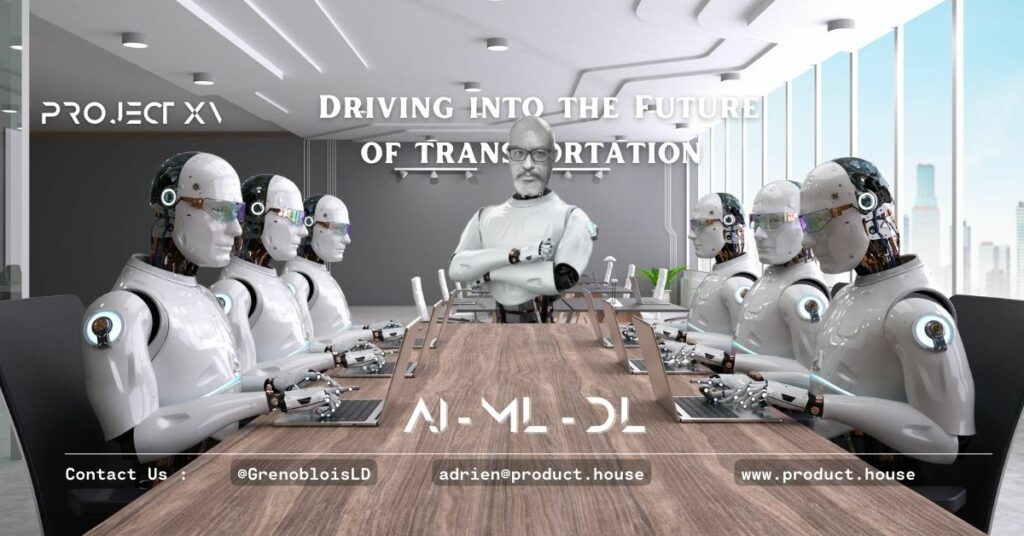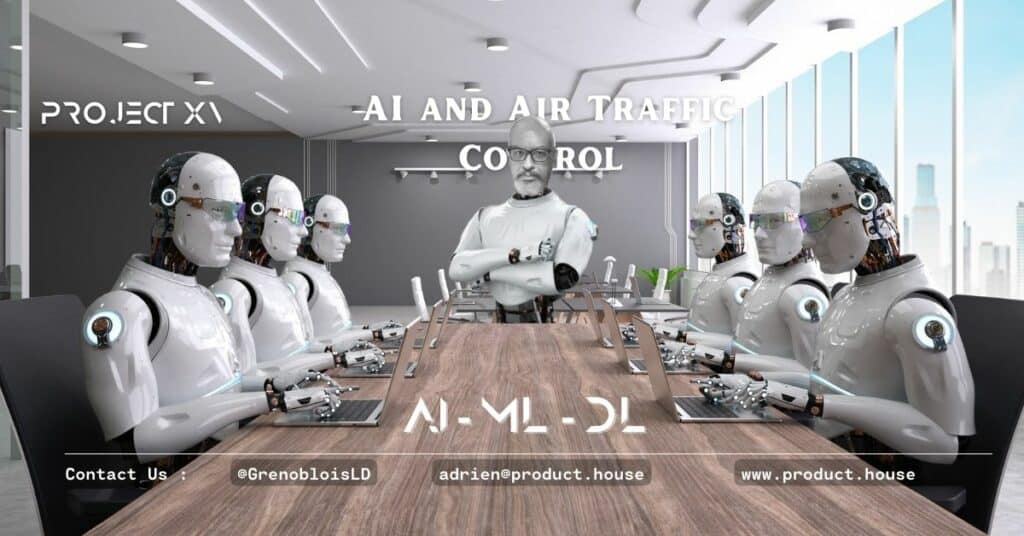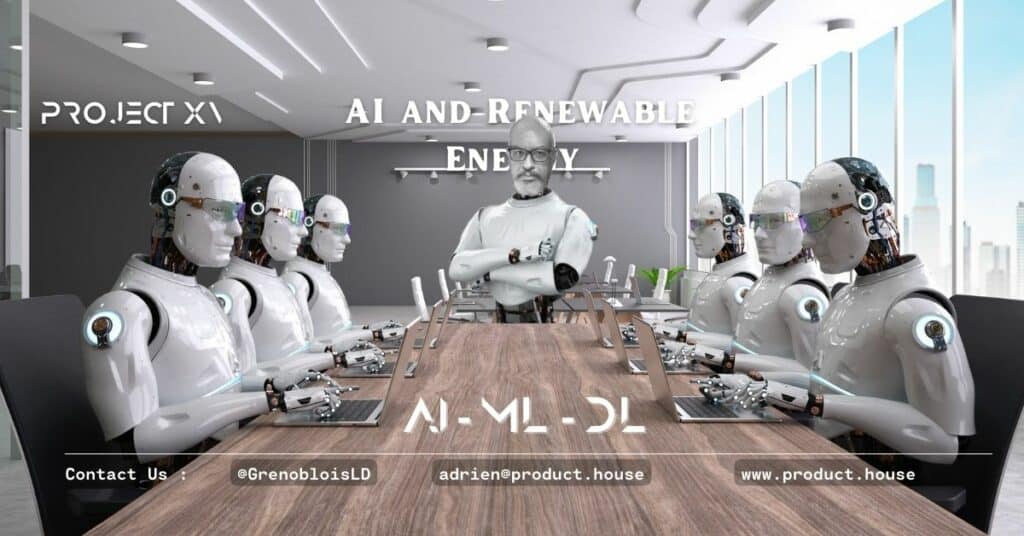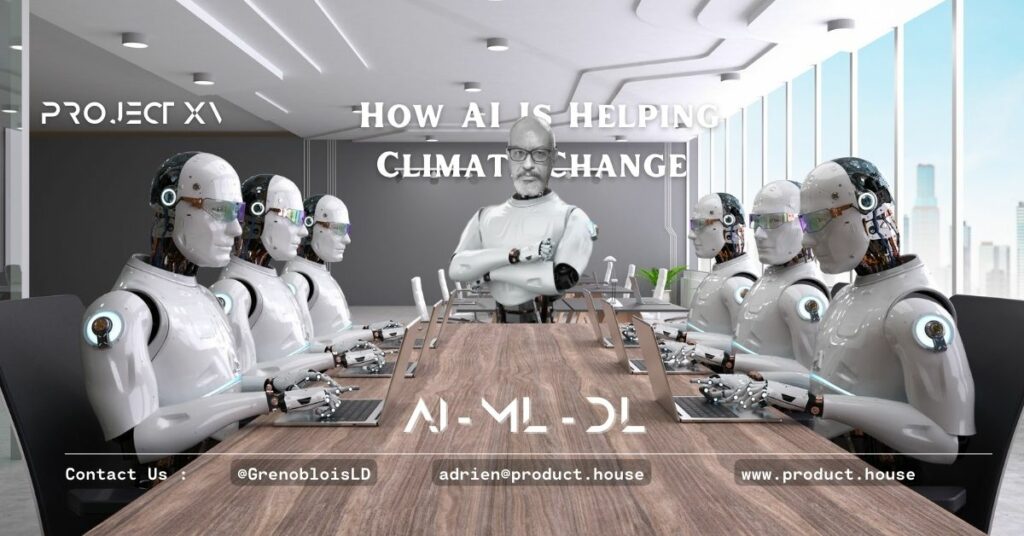Driving into the Future: How AI Is Changing Transportation

Artificial intelligence (AI) is transforming the transportation industry in numerous ways. From self-driving cars to predictive maintenance for vehicles, AI is making transportation safer, more efficient, and more environmentally friendly. In this article, we’ll explore how AI is changing transportation and what the future holds for this industry.
Self-Driving Cars
One of the most significant ways that AI is changing transportation is through the development of self-driving cars. These vehicles use a combination of sensors, cameras, and AI algorithms to navigate roads and traffic. Self-driving cars have the potential to reduce traffic accidents and make transportation more accessible to those who cannot currently drive.
Predictive Maintenance
AI is also being used in the transportation industry to improve vehicle maintenance. By analyzing data from sensors and other sources, AI algorithms can predict when a vehicle needs maintenance and alert drivers and maintenance crews accordingly. This can reduce the risk of breakdowns and improve vehicle safety.
Traffic Management
AI is also being used to improve traffic management in cities. By analyzing traffic patterns and data from sensors and cameras, AI algorithms can identify areas of congestion and suggest alternative routes. This can reduce traffic and improve air quality in urban areas.
Environmental Impact
AI is also being used to reduce the environmental impact of transportation. Electric and hybrid vehicles, which are becoming more common, use AI algorithms to optimize battery performance and reduce energy consumption. This can reduce greenhouse gas emissions and help combat climate change.
Challenges
While there are many benefits to using AI in transportation, there are also challenges that need to be addressed. One of the biggest challenges is the cost of implementing these technologies. Self-driving cars and other AI-powered transportation solutions can be expensive, and many transportation providers may not have the resources to invest in them.
Another challenge is the impact on employment. As AI-powered transportation solutions become more common, there is a risk that they could replace some jobs in the transportation industry. However, many experts argue that these technologies will create new types of jobs and increase demand for skilled workers.
Future of AI in Transportation
The future of AI in transportation is exciting. As technology continues to advance, we can expect to see more use of AI in transportation, including the development of new self-driving car models, improved traffic management systems, and more environmentally friendly transportation solutions.
Conclusion
AI is transforming the transportation industry, making it safer, more efficient, and more environmentally friendly. While there are challenges to be addressed, the potential benefits of these technologies are significant. As we look to the future, we can expect to see more use of AI in transportation, leading to a more connected, sustainable, and safer world.
Article Reminders:
- AI is changing transportation through the development of self-driving cars, predictive maintenance, traffic management, and reducing environmental impact.
- Self-driving cars have the potential to make transportation safer and more accessible.
- Predictive maintenance can reduce the risk of vehicle breakdowns and improve safety.
- AI algorithms can improve traffic management and reduce congestion and air pollution.
- AI is helping to reduce the environmental impact of transportation.
- Challenges include the cost of implementing AI-powered transportation solutions and the impact on employment.
FAQs
- How is AI changing transportation?
AI is changing transportation through the development of self-driving cars, predictive maintenance, traffic management, and reducing environmental impact. - What are self-driving cars? Self-driving cars use a combination of sensors, cameras, and AI algorithms to navigate roads and traffic.
- What is predictive maintenance? Predictive maintenance uses AI algorithms to analyze data from sensors and other sources to predict when a vehicle needs maintenance.
- How can AI improve traffic management? AI algorithms can analyze traffic patterns and data from sensors and cameras to identify areas of congestion and suggest alternative routes.
- How is AI helping to reduce the environmental impact of transportation? AI is helping to reduce the environmental impact of transportation through the development of electric and hybrid vehicles that use AI algorithms to optimize battery performance and reduce energy consumption.
- What are the challenges of using AI in transportation? Challenges include the cost of implementing AI-powered transportation solutions and the impact on employment.
- How can self-driving cars make transportation safer? Self-driving cars have the potential to reduce traffic accidents and make transportation more accessible to those who cannot currently drive.
- What is the potential impact of AI on employment in the transportation industry? There is a risk that AI-powered transportation solutions could replace some jobs in the transportation industry, but many experts argue that these technologies will create new types of jobs and increase demand for skilled workers.
- How can AI reduce the environmental impact of transportation? AI can reduce the environmental impact of transportation by improving the efficiency of vehicles and reducing energy consumption.
- What is the future of AI in transportation? As technology continues to advance, we can expect to see more use of AI in transportation, including the development of new self-driving car models, improved traffic management systems, and more environmentally friendly transportation solutions.
Resources:
- “Artificial Intelligence in Transportation: The Future Is Here” by Scott MacDonald: This book explores the impact of artificial intelligence on the transportation industry, including self-driving cars, predictive maintenance, and traffic management.
- “The Transportation Revolution: How AI Is Driving Innovation” by Robert Schukai: This book discusses how artificial intelligence is revolutionizing transportation, including the development of self-driving cars, traffic management systems, and new transportation models.
- “Transportation Analytics and Artificial Intelligence” by N. John Haberland and Brenda L. Cheever: This book focuses on the use of analytics and artificial intelligence in transportation, including predictive maintenance, route optimization, and supply chain management.
Books:
- “Transportation and Artificial Intelligence: Second Edition” by K.T. Lee and M.A. Bhatti: This book provides an overview of the use of artificial intelligence in transportation, including self-driving cars, intelligent transportation systems, and logistics optimization.
- “Artificial Intelligence in Transportation: Case Studies” by Akshay Kaul: This book presents case studies of how artificial intelligence is being used in transportation, including self-driving cars, predictive maintenance, and traffic management. It also discusses the challenges and opportunities associated with these technologies.
Case Studies:
- Self-driving cars by Waymo
- Predictive maintenance by BMW
Examples of Use:
- Self-driving cars for transportation and delivery services.
- Predictive maintenance for vehicle fleets.
Glossary:
- Artificial Intelligence (AI): The ability of machines to perform tasks that normally require human intelligence.
- Predictive Maintenance: The use of AI algorithms to analyze data from sensors and other sources to predict when a vehicle needs maintenance.
- Self-Driving Cars: Vehicles that use a combination of sensors, cameras, and AI algorithms to navigate roads and traffic without human intervention.
- Traffic Management: The use of AI algorithms to analyze traffic patterns and suggest alternative routes to reduce congestion and improve air quality.
- Environmental Impact: The impact of transportation on the environment, including factors such as greenhouse gas emissions and energy consumption.
Quiz Questions:
- What is AI?
- How is AI changing transportation?
- What are self-driving cars?
- What is predictive maintenance?
- How can AI improve traffic management?
- What is the environmental impact of transportation?
- What are some challenges of using AI in transportation?
- What is the potential impact of AI on employment in the transportation industry?
- What are some examples of AI-powered transportation solutions?
- What is the future of AI in transportation?






